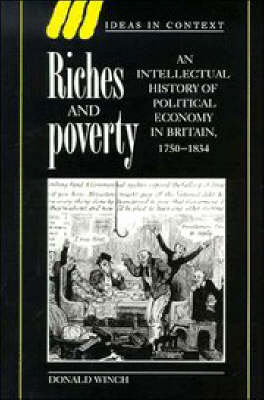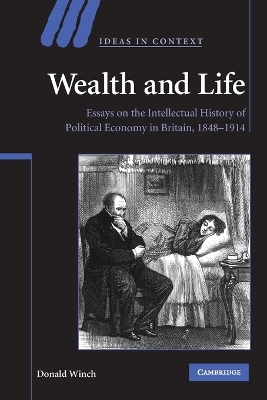Ideas in Context
2 total works
In Riches and Poverty, Donald Winch explores the implications of a fundamental and influential idea in political economy. Adam Smith's science of the legislator provided a key to studying the rich and poor in commercial societies, transformed an ancient debate on luxury and inequality, and furnished a basis for assessing the American and French revolutions. Against this background, Britain embarked on its career as the first manufacturing nation, and Malthus made his first contributions to a debate which concluded with the Poor Law Amendment Act of 1834. Malthus provoked fierce opposition from the Lake poets, opening an intellectual rift that persisted throughout the nineteenth century and continues to influence our perceptions of cultural history. Donald Winch has written a compelling and consistently-argued narrative of these developments, which emphasises throughout the moral and political bearings of economic ideas.
Donald Winch completes the intellectual history of political economy begun in Riches and Poverty (1996). A major theme addressed in both volumes is the 'bitter argument between economists and human beings' provoked by Britain's industrial revolution. Winch takes the argument from Mill's contributions to the 'condition-of-England' debate in 1848 through to the work on economic wellbeing of Alfred Marshall. The writings of major figures of the period are examined in a sequence of interlinked essays that ends with consideration of the twentieth-century fate of the debate between utilitarians and romantics in the hands of Leavis, Williams and Thompson. Donald Winch is one of Britain's most distinguished historians of ideas, and Wealth and Life brings to fruition a long-standing interest in the history of those intellectual pursuits that have shaped the understanding of Britain as an industrial society, and continue to influence cultural responses to the moral questions posed by economic life.

